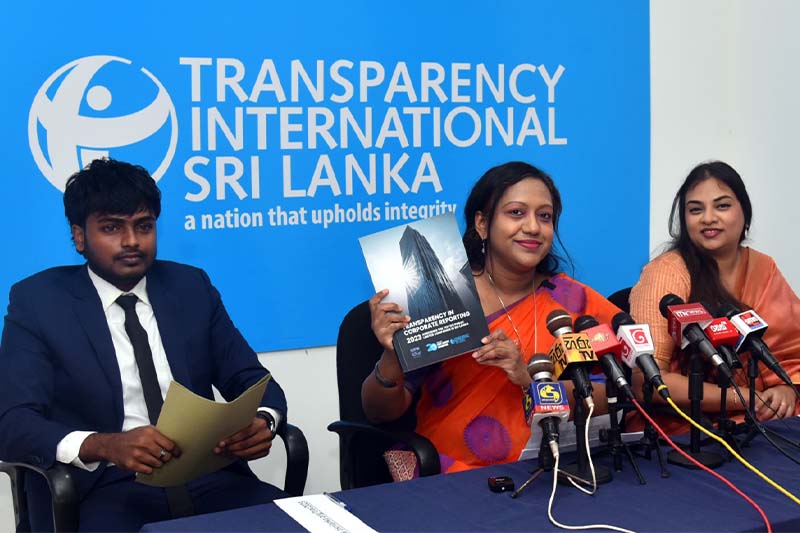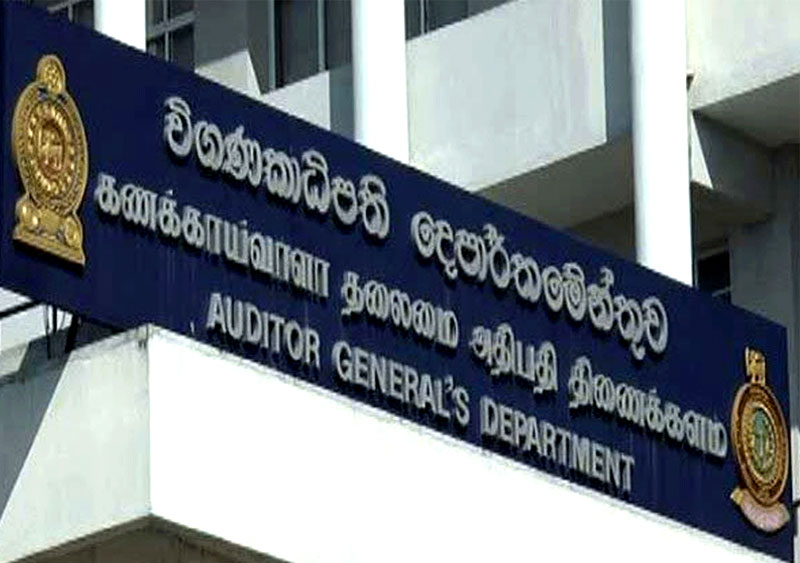The Transparency International Sri Lanka (TISL) yesterday announced findings of the assessment of transparency in corporate reporting.
It said John Keells Holdings PLC and Teejay Lanka PLC who ranked first in previous Transparency in Corporate Reporting Assessments (TRAC) were joined this year by Ceylon Tobacco Company PLC, Dialog Axiata PLC, and Dilmah Ceylon Tea Company PLC.
TISL said all have achieved the full score for transparency in corporate reporting, while 27 companies are considered ‘Significantly Transparent’ in corporate reporting.
TISL has been conducting the TRAC Assessment since 2020 and has continued to do so annually. For the first time this year, there is a five-way tie for first place in corporate reporting among the top 125 public limited companies in Sri Lanka (based on market capitalisation on the Colombo Stock Exchange as of 5 July 2023).
The TRAC 2023 Report unveiled yesterday revealed that companies evaluated this year have achieved an average score of 5.85 out of 10. This marks a slight overall improvement compared to the previous year’s assessment, reflecting advancements in corporate transparency and reporting practices.
The TRAC Report 2023 assessed companies on their corporate disclosure practices in several important areas crucial to fighting and preventing corruption: reporting on anti-corruption programs, organisational transparency, domestic financial reporting, reporting on gender and non-discrimination policies, country-by-country reporting, and reporting on procurement related to government contracts/tenders. Companies were then scored on a scale of 0-10, (10 being the highest and 0 being the lowest) based on publicly available information and were categorised into six groups as “Fully Transparent, Significantly Transparent, Moderately Transparent, Partially Transparent, Slightly Transparent, and Least Transparent” according to the level of transparency in their corporate disclosures. Companies were also given the opportunity to provide feedback on their initial scores.
While congratulating the high scorers of the assessment, TISL said it is important to note that the TRAC report assesses transparency in corporate disclosures and does not assess the actual implementation of companies’ anti-corruption policies or programs. Therefore, a low score does not necessarily mean that a company does not have strong anti-corruption programs, nor does it indicate any wrongdoing on the part of the company. Conversely, a high score may not always reflect operational and implementational success of anti-corruption programs, but merely reflects strong disclosure mechanisms pertaining to anti-corruption, organisational transparency, domestic financial reporting, and policies on gender and non-discrimination.
TISL’s expectation is that periodic TRAC assessments will encourage companies to improve standards of integrity and transparency in business. The most important objective of this assessment is to encourage companies to incorporate and strengthen anti-corruption practices and to make this information publicly available.
As much as public sector corruption is a serious problem, so too is private sector corruption, wherein private sector actors can often be silent colluders or enablers of much larger public sector corruption. The newly enacted Anti-Corruption Act of 2023, for the first time in Sri Lanka recognises bribery in the private sector as a punishable offence. This is further strengthened by the revised Listing Rules of the Colombo Stock Exchange, under which listed companies are required to adopt and maintain whistle-blower policies and anti-bribery and corruption policies and to make disclosures on said policies.
TISL Executive Director Nadishani Perera said: “Assessing corporate transparency through TRAC assessments will not address all grand corruption cases in Sri Lanka, as TISL also conducts research, engages in litigation, and conducts other programs and initiatives such as trainings on Anti-Bribery and Corruption for the private sector, to raise further awareness to address the issue of corruption. Nevertheless, corporate transparency is one step that companies can take to reduce the risk of corruption within their organisations.”
“Companies must commit to abide by the new regulatory standards, whilst also self-regulating to maintain higher standards than the minimum requirements. As such, periodic reviewing of corporate disclosures serves as a strong motivator for companies to regularly review their policies and improve their disclosures.” he added.
(ft.lk)





















